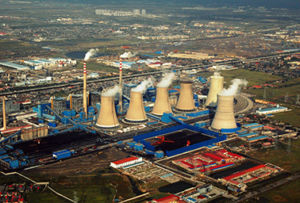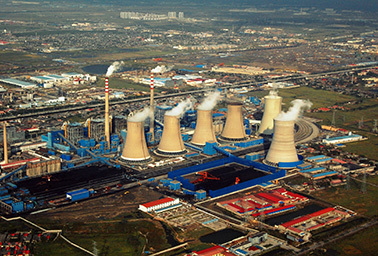For those of you who have been following my posts for some time, you will recall that I have been occasionally sending you information that indicates that China “gets it”. Those posts have indicated that China’s leaders realize that they have a pollution problem that impacts public concern and public health. Furthermore, they are not oblivious to climate change and the impact it will have on their citizens and economy.
Recent information has indicated that China is changing. They are moving rapidly to reduce pollution and CO2 emissions from coal fired power plants while at the same time shifting aggressively to green energy.
Now, finally, it appears that the steps they are taking, along with the rest of the world, are finally showing progress. For the first time in 40 years, it appears that with China’s help, the steps that the world is taking to address the climate crisis are finally beginning to show real progress.
We CAN do this. It’s about time as we have NO TIME to waste.
IEA says energy emissions held steady last year as the global economy grew — a first in 40 years
Lisa Friedman, E&E reporter
Published: Monday, March 16, 2015
The world’s energy-related carbon dioxide emissions stopped rising in 2014, even as the economy grew, according to early data released by the International Energy Agency (IEA).
Researchers said the early numbers showing that CO2 emissions remained steady at 32.3 billion metric tons in 2014 — marking the first time in 40 years that a dip in energy-sector emissions has not been linked to an economic downturn — were encouraging. Others, though, cautioned that it remains unclear if the figures represent a trend or a one-off situation.
Officials said the data, which will be part of a report due out this summer, were first divulged in an interview IEA Chief Economist Fatih Birol did with the Financial Times. In a statement released Friday, Birol called the figures “a very welcome and significant surprise” that will likely help global climate change negotiations.
“This gives me even more hope that humankind will be able to work together to combat climate change, the most important threat facing us today,” Birol said. “It provides much-needed momentum to negotiators preparing to forge a global climate deal in Paris in December: for the first time, greenhouse gas emissions are decoupling from economic growth.”
IEA officials declined to make Birol or others available for a follow-up interview, but according to the cursory information released by the IEA, changes in China’s energy consumption patterns played a large role in the halt. The organization cited growth in renewable energy generation in China and high-income countries, as well as a decline in burning of coal.
Bill Hare, founder and CEO of Climate Analytics, said if the numbers are verified, it could be a “very nice surprise,” showing that efforts to rein in emissions are having a serious effect on the atmosphere.
“You can actually start to see the climate policies as they start to work. At the global level, this is very exciting,” he said.
Lower forecasts for China’s emissions
In November, China announced it will peak CO2 emissions by 2030 and increase the share of non-fossil energy sources to at least 20 percent also by that year. In the meantime, the government appears on target to meet a pledge it made in 2009 to reduce CO2 emissions per unit of gross domestic product by 40 to 45 percent by 2020.

Tianjin power plant
Coal-fired power plant in Tianjin, China. When it comes to emissions, China appears to be the world’s market mover.
Photo by Shubert Ciencia, courtesy of Flickr.
At the same time, it is implementing significant policies like a cap on coal consumption by 2020 — and several recent analyses from environmental and financial groups have found the nation’s coal consumption fell outright in 2014 for the first time since 1998.
Hare said his own organization’s research is finding that China’s efforts are having an impact. With new analysis being prepared now, Hare said he expects to find that China’s emissions during the 2020s will be lower than the 11.7 gigatons of CO2 equivalent they had predicted just a few months ago.
Kelly Levin, a senior associate with the World Resources Institute think tank, said there are still a number of questions to be answered about the figures. But, she said, “This is certainly a key milestone if indeed it is more than just a one-year blip.”
She noted that the IEA does not track emissions from land use and cement, so the figures don’t represent the full landscape of global emissions. Still, energy generation represents more than two-thirds of climate pollution.
With nations preparing to hammer out a new global climate change accord to be signed in Paris this December, Levin said the figures could open the eyes of world leaders about the opportunities of emissions growth.
“It’s certainly hopeful. It shows that we can reduce emissions and achieve development at the same time, that we can redefine growth in a way that decouples emissions,” she said. “Those are the right messages that leaders going into Paris need to hear.”
Questions about accuracy
But Glen Peters, an energy expert at the Oslo, Norway-based CICERO research group, offered up a note of caution. More surprising than the numbers itself, he said, is the fact that the IEA made the still-fresh data public so early.
“I think of them as very preliminary, and I wouldn’t be surprised if they changed,” he said. Peters noted that when the Chinese government submitted energy statistics this year, it actually revised upward by 8 percent the country’s coal consumption from 2013. Something similar could happen with 2014 data, as well, he cautioned.
At the same time, forecasters have long been skeptical about the veracity of China’s self-reported GDP data. So, Peters said, it also remains possible that the 2014 flat emissions figure is in fact connected to an economic downturn.
“The real question is, what happens next year?” he said of the early IEA figures. “If the same thing happened next year, that would be really, really unprecedented.”
For now, Peters said, “We can be positive and hope that it is good news, but we have to be prepared for changes.”
Twitter: @LFFriedman | Email: lfriedman@eenews.net



